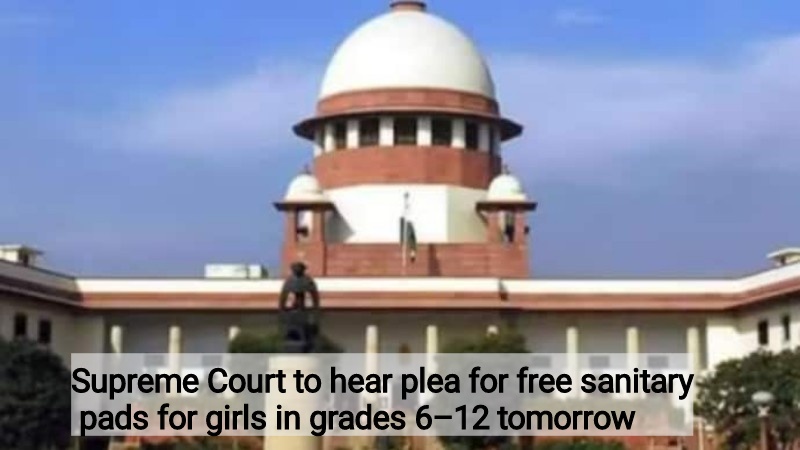
On Monday, the Supreme Court is expected to hear a request for instructions to states and the Centre to ensure separate female lavatory facilities in all government-aided and residential schools and to supply free sanitary pads to class 6-12 girls.
A bench consisting of Chief Justice D Y Chandrachud, Justices JB Pardiwala and Manoj Misra, is slated to hear the appeal of social worker Jaya Thakur.
The top court had earlier requested that the centre create a Standard Operating Procedure and a national model for managing menstrual hygiene for girls enrolled in schools that would be followed by all states and Union Territories.
The problem was deemed to be of ‘immense importance’ by the top court on April 10, and it recommended that the centre work with all stakeholders to develop a unified national strategy on the management of menstrual hygiene in schools, including government and aided schools.
In order to cooperate with all the states and UTs and gather pertinent data for developing a national policy, it has designated the secretary of the Ministry of Health and Family Welfare (MOHFW) as the nodal officer.
The MoHFW, Ministry of Education, and Ministry of Jal Shakti all already have programmes in place to address issues connected to menstruation hygiene, the highest court had said.
‘At the present stage, we are of the considered view that it would be appropriate if the Union Government engages with all the State governments and Union Territories to ensure that a uniform national policy is formulated with sufficient leeway for the States and Union Territories to make adjustments, based on the prevailing conditions in their territories,’ it had said.
According to Thakur’s argument in her petition, which was submitted through attorney Varinder Kumar Sharma, adolescent girls from low-income families who are between the ages of 11 and 18 face significant obstacles to receiving an education because they lack access to that right, which is guaranteed by Article 21A of the Constitution.
‘These are adolescent females who are not equipped with and are also not educated by their parents about menstruation and menstrual hygiene.’
‘The deprived economic status and illiteracy leads to prevalence of unhygienic and unhealthy practices which has serious health consequences, increase obstinacy and leads to eventual dropping out from schools,’ the plea said.

Post Your Comments